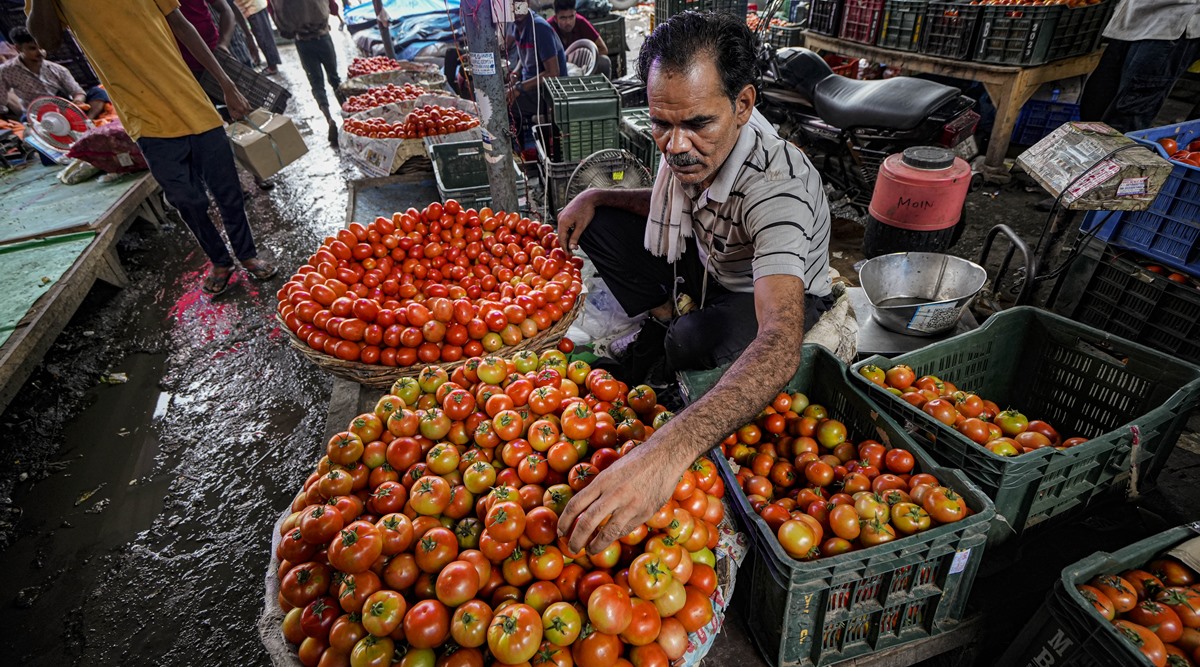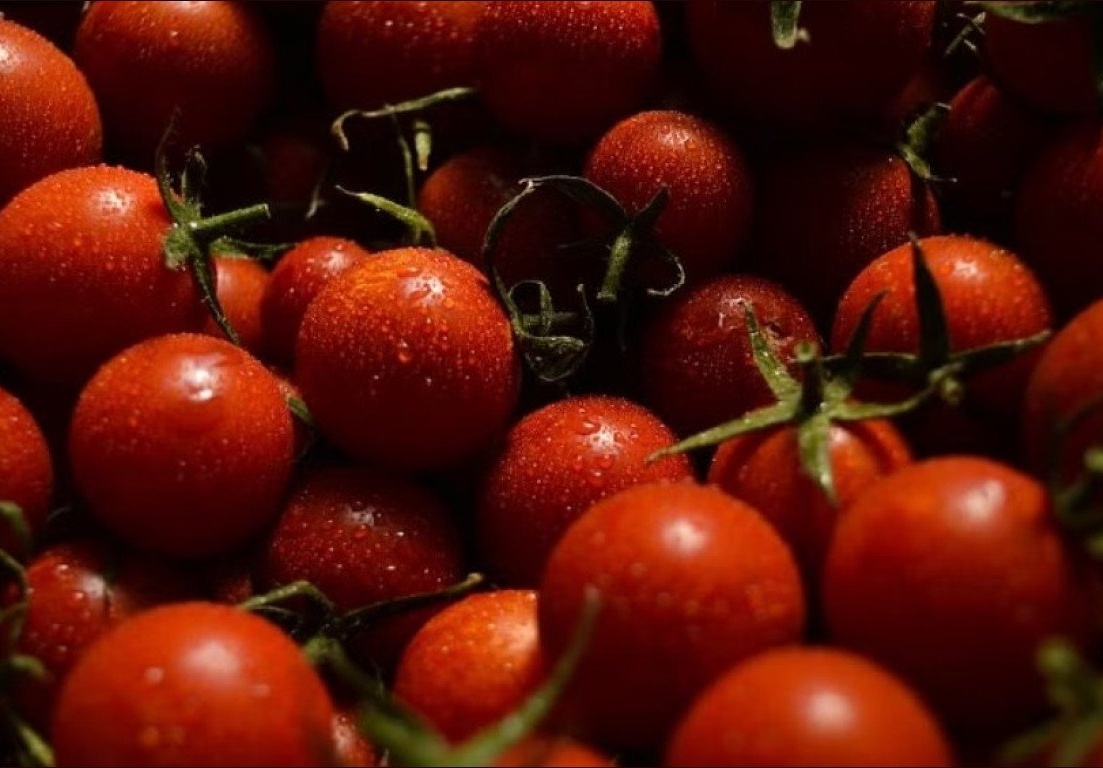Government Reduces Subsidized Rate of Tomatoes to Rs 80/kg in Delhi-NCR, and Other Locations 2023

Government Reduces Subsidized Rate of Tomatoes to Rs 80/kg in Delhi-NCR, and Other Locations 2023
Tomatoes are now being sold in Delhi-NCR by the Centre for a reduced price of Rs 90 per kilogramme as of this past Friday. On Saturday, more cities were included.
To relieve people from the excessive prices of essential kitchen items in retail marketplaces, the Centre would sell tomatoes for Rs 80 per kg starting on Sunday instead of Rs 90 per kg.
Tomatoes are now being sold in Delhi-NCR by the Centre for a reduced price of Rs 90 per kilogramme as of this past Friday. On Saturday, more cities were included.
According to a government statement, “the government’s intervention to sell it at a concessional rate of Rs 90 per kg, at several locations in the country where the prices were ruling exceptionally high, has resulted in a decrease in the wholesale prices of tomatoes.”

“It has been decided to sell it at Rs 80 per kg starting today, Sunday, July 16th, 2023,” the statement said after a review of the situation at more than 500 sites around the nation.
According to the statement, sales began on Sunday at several locations in Delhi, Noida, Lucknow, Kanpur, Varanasi, Patna, Muzaffarpur, and Arrah through cooperatives NAFED and NCCF. Depending on the local market pricing, the sale of tomatoes at a discount will be extended to further cities starting Monday.
The statement stated that “the government of India is committed to providing relief to the consumers.” On behalf of the Centre, tomatoes are being sold via mobile vans operated by the National Cooperative Consumers’ Federation of India (NCCF) and the National Agricultural Cooperative Marketing Federation of India (NAFED).
Due to monsoon rains and the lean season, tomato prices in the retail sector continue to be high, averaging up to Rs 250 per kg throughout major cities. According to the Government, the average cost for a kilogramme throughout India on Saturday was close to Rs 117.

According to the Department of Consumer Affairs statistics, tomatoes were selling for an average retail price of Rs. 116.86 per kg across India on Saturday. The highest price was Rs. 250 per kg, and the lowest was Rs. 25 per kg. Tomatoes had a mod price of Rs 100 per kilogramme.
Tomatoes were the most popular in metro areas, costing Rs 178 per kg in Delhi, Rs 150 per kg in Mumbai, and Rs 132 per kg in Chennai. Hapur has the highest per-kg cost at Rs 250.
The months of July through August and October through November, typically low output, are when tomato prices often soar. The monsoon’s impact on supply has produced a dramatic increase in prices.
Anice Joseph Chandra, the managing director of NCCF, told PTI that the organization buys tomatoes from Madanapalli in Andhra Pradesh, Kolar in Karnataka, and Sanganeri in Maharashtra. NCCF has sold 35,000 kg of tomatoes in the last two days. According to her, it anticipates selling 20,000 kg in Delhi-NCR, 15,000 kg in Varanasi, and 10,000 kg apiece in Lucknow and Kanpur on Sunday.
She stated that on Saturday, NCCF sold nearly 7,000 kg in Lucknow, which assisted in lowering the wholesale price from Rs 130 per kg to Rs 115 per kg.
According to Joseph Chandra, a further price cut to Rs 80 per kilogramme will lower prices in the following days. Until the price stabilizes, we will keep intervening. NCCF sells tomatoes throughout Delhi-NCR through its mobile vans and four to five NAFED-owned establishments. Beginning on Sunday, it will be sold at Kendriya Bhandar’s retail locations.

In a move that comes as both a relief and surprise, the Government of India announced on Friday that it would immediately reduce the subsidized rate of tomatoes to Rs 80 per kilogram. The decision is intended to aid in stabilizing skyrocketing tomato prices, causing considerable strain on the average Indian household. The revised rates apply to the Delhi-National Capital Region (NCR) and will be implemented in other regions.
The decision comes against a substantial surge in tomato prices over the last couple of months, which have escalated due to supply constraints caused by unfavourable weather conditions. The sudden price spike, reaching up to Rs 120 per kg in some markets, has raised concern among citizens and policymakers alike.
The inflationary trend, if unchecked, threatened not only the kitchen budgets of millions of households but also had a domino effect on other aspects of the economy. Tomatoes, a key ingredient in Indian cuisine, significantly influence food inflation and thus play a pivotal role in the nation’s overall inflation dynamics.
Responding to the outcry from consumers and the increasing pressure from the opposition, the Government decided to step in and take corrective action. With the revised subsidized rate, tomatoes will be available at Rs 80 per kg at all government-run fair-price shops and outlets.
The subsidy has been issued as part of the Public Distribution System (PDS), an Indian food security system established by the Government to distribute subsidized food and non-food items to the country’s poor.
This decision will likely relieve households struggling with the current inflationary pressures. However, the implementation of the revised prices raises a few questions. Chiefly, will the Government be able to maintain this price given the volatile nature of vegetable prices in India? And more importantly, how will it impact the farmers already grappling with low income and the adversities of climate change?

Despite these concerns, this move will be instrumental in curbing the current inflationary trend. A decrease in the price of tomatoes will reduce the burden on households, giving them more room to manage their budgets effectively.
While this move will temporarily alleviate the issue, the Government needs to work on long-term solutions. These include developing better storage and transportation facilities to reduce waste, investing in weather forecasting technologies to prepare for climate fluctuations, and implementing better agricultural practices to increase yield.

Investments in these areas would stabilize the prices of essential commodities like tomatoes and provide much-needed support to the farmers.
The Government’s move to reduce the subsidized rate of tomatoes is a welcome step towards addressing the immediate issue of rising prices. But it is crucial to remember that this is a short-term fix to a long-term problem. Sustainable solutions will require a holistic approach that considers the needs of consumers, the livelihood of farmers, and the overall health of the nation’s economy.
For now, however, the sight of affordable tomatoes back on the shelves will undoubtedly bring many smiles, offering a respite from the current bout of inflation.




